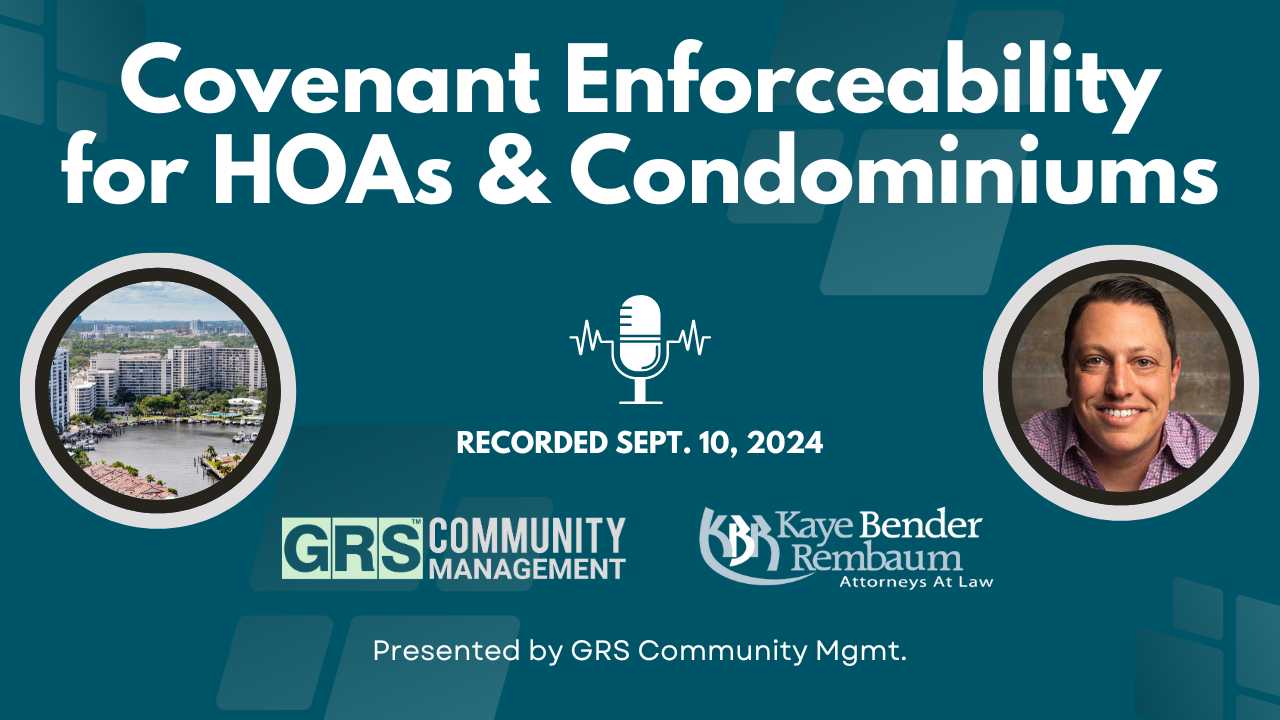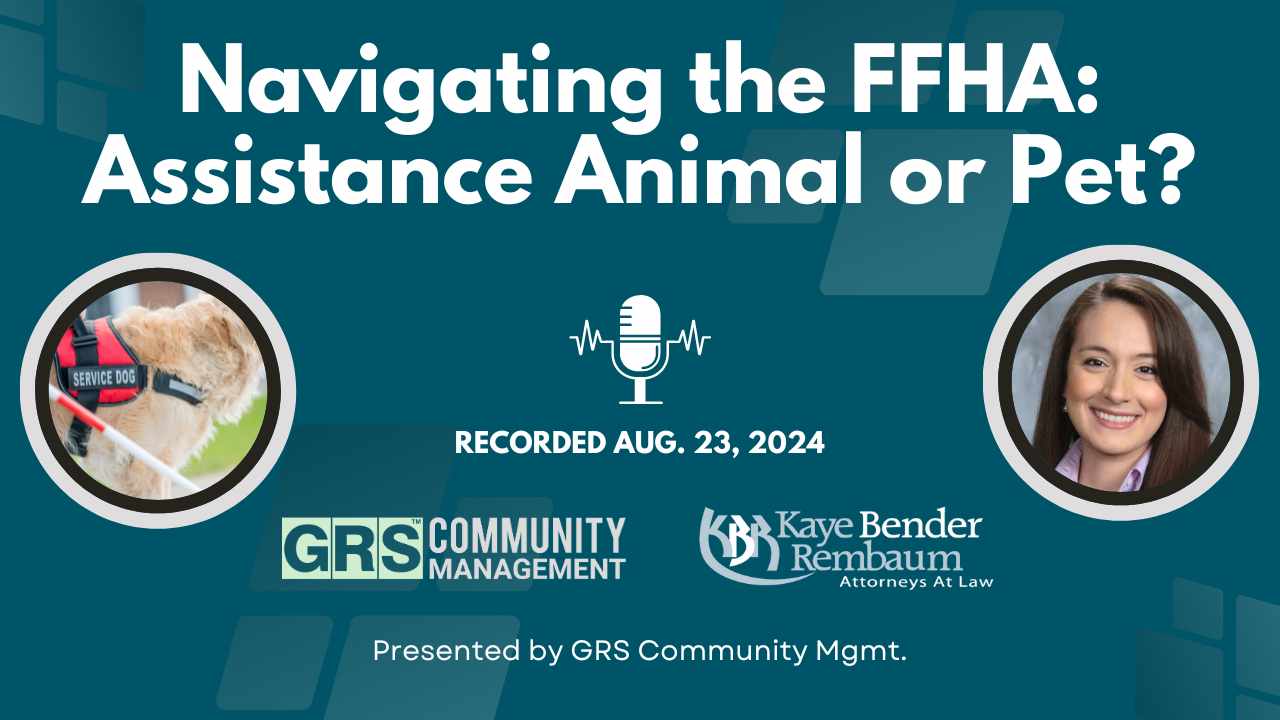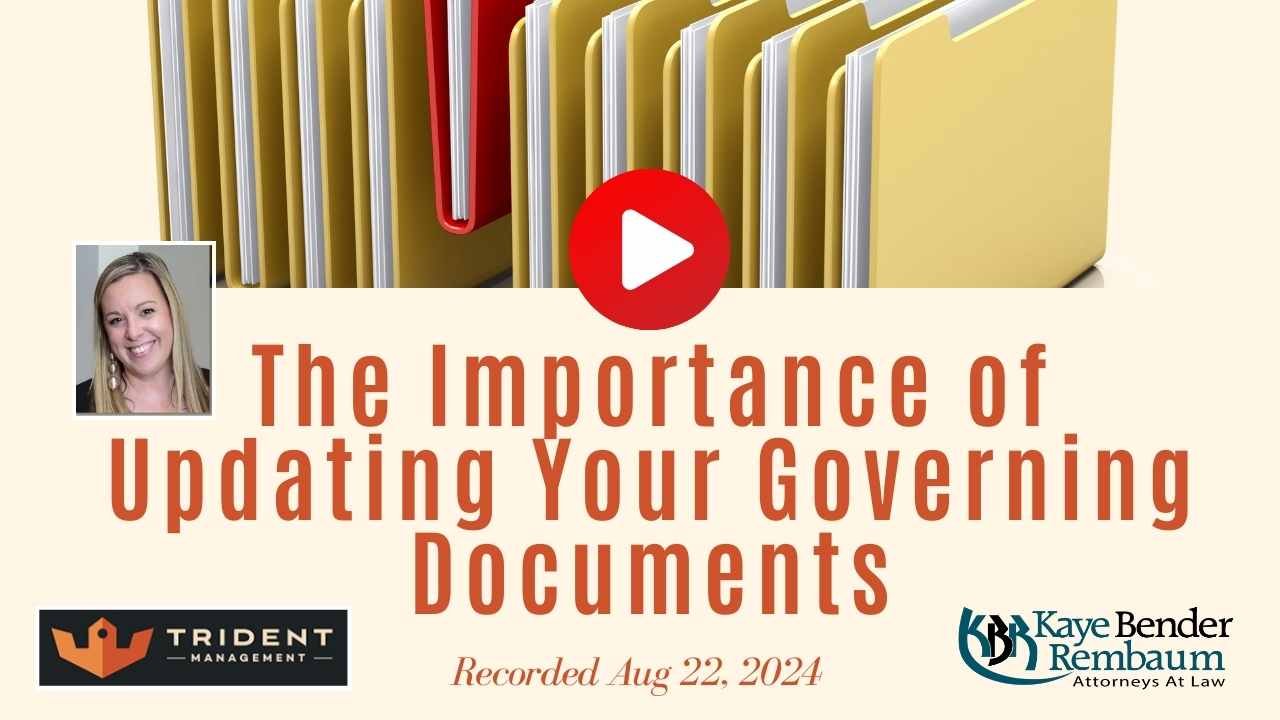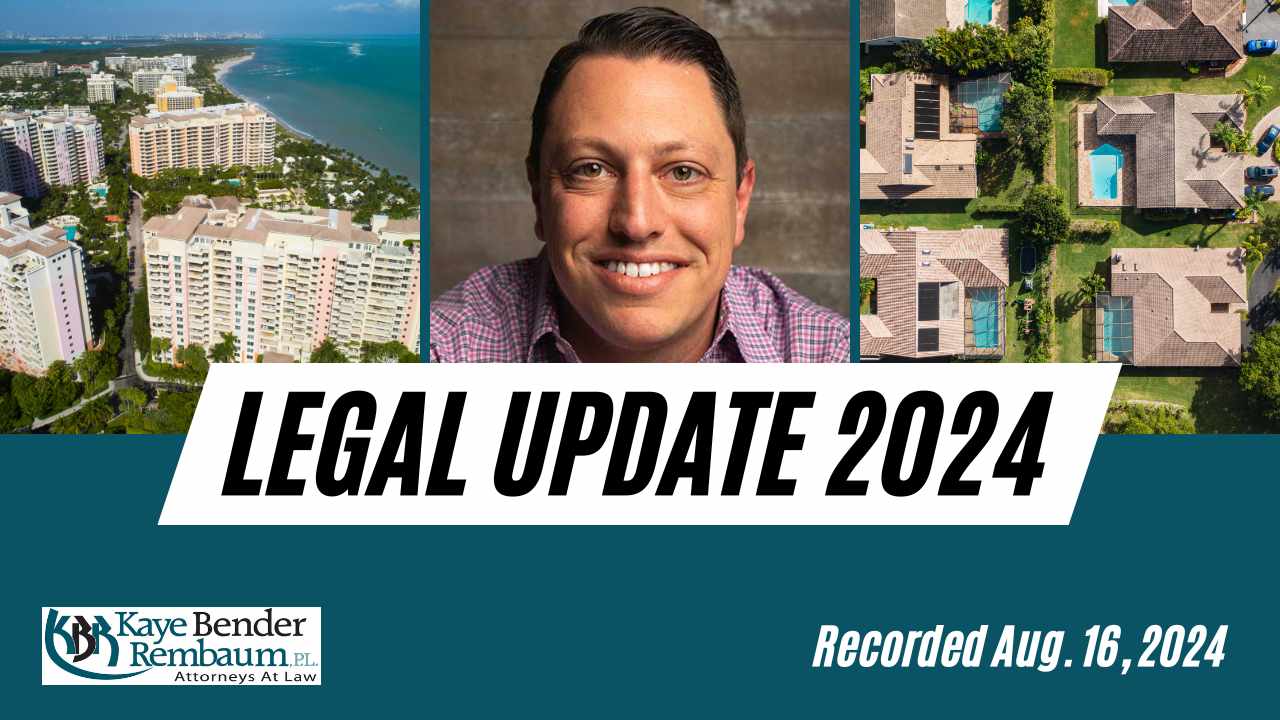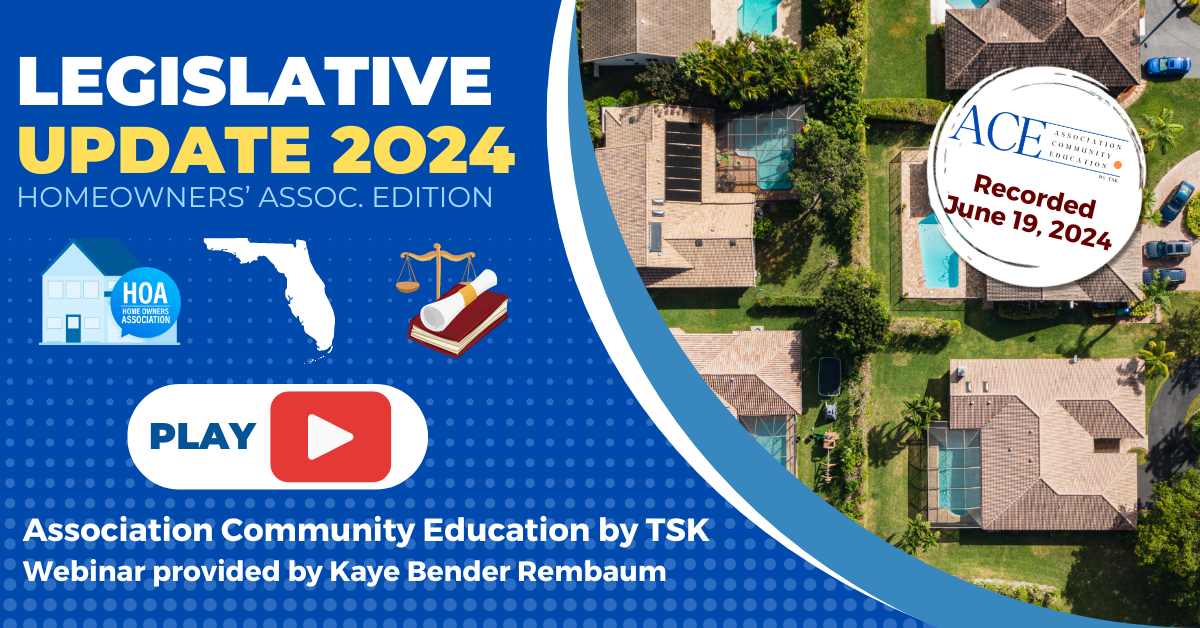*Important Viewing this on-demand video WILL NOT satisfy Florida state requirements for new Board Members; NOR will this recorded version offer CEUs for CAMS or Board Members. It is for informational purposes only and is not to be considered as legal advice. Should you have any questions, contact your association counsel.*
Hosted by GRS Community Management. Provided by Kaye Bender Rembaum. Instructed by Alan Schwartzseid, Esq. BCS of the Firm’s Winter Springs (Orlando-area) location.
The importance of timely and uniformly enforcing the covenants, learning about common restrictions to enforce, and possible enforcement issues that arise due to the lack of uniform and/or timely enforcement. Also learn the basics of enforcement options, including the statutory process to levy a monetary fine, to suspend the ability of a person to use the common areas, as well as suspending voting rights. Participants will also be provided with guidance on the formal dispute resolution process when a covenant violation occurs, including, as applicable, mediation, arbitration, and legal action being filed in State Court.

